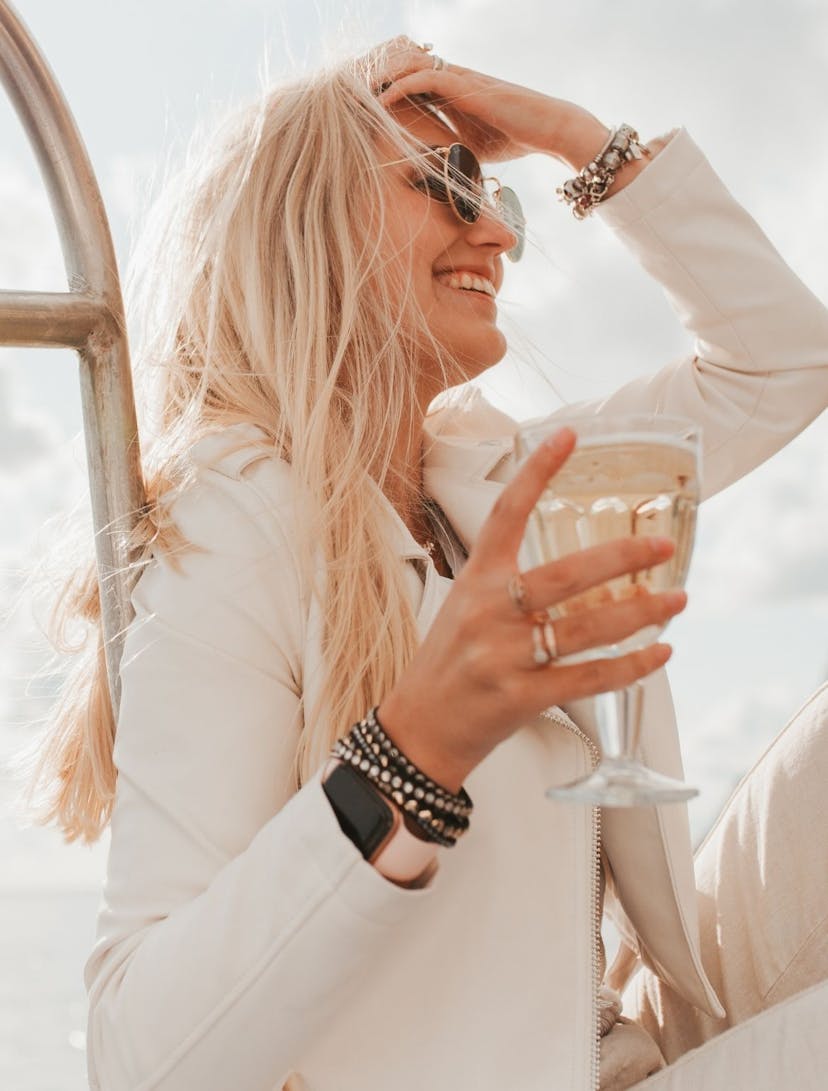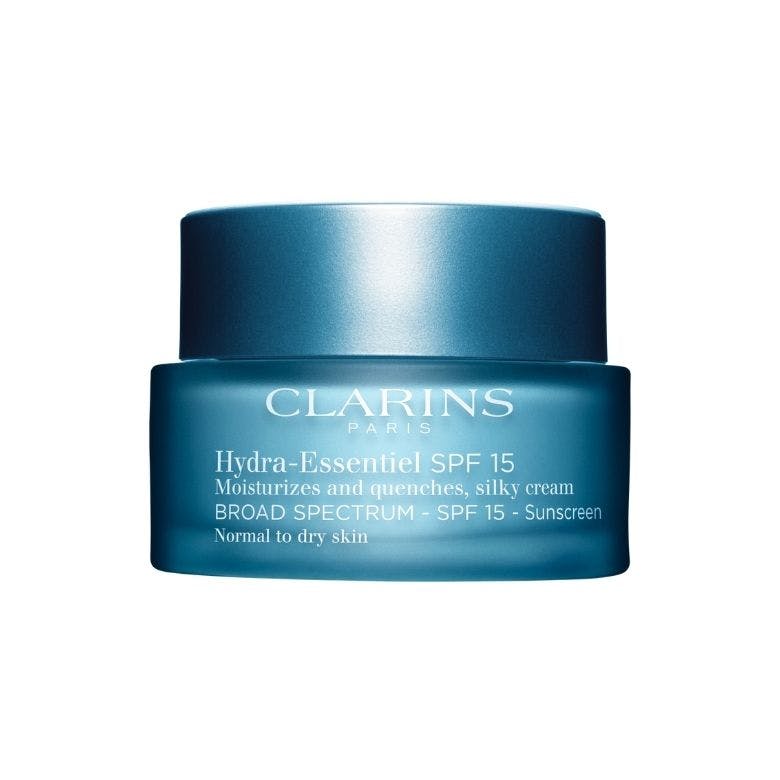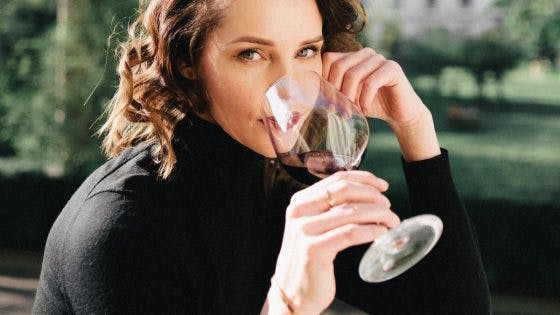Does Alcohol Age Your Skin? The Experts Weigh In
6 minutes read
Does alcohol age your skin? Yes! Your happy hour may seem like a good way to unwind and de-stress after a hard day’s work and temporarily boost your levels of serotonin and dopamine. But be wary, as experts say over-indulging can seriously wreak havoc on your skin.
From zapping skin’s moisture to speeding up the ageing process, here are the effects of alcohol on skin that experts want you to know.
How does our skin age?
There are two types of skin ageing. Firstly, the inevitable ‘intrinsic ageing’, also called chronological ageing, is a natural consequence of ageing and is genetically determined. It is something you can’t control and is caused by internal factors.
Experts say that, as we mature, our skin cells biologically age and hormones drop; midlife Estrogen levels fall for women and testosterone for men diminishes. The cell’s slow regeneration in the epidermis leads to thinner and drier skin.
The second type is called ‘extrinsic ageing,’ which is triggered by environmental aggressors and unhealthy lifestyle choices such as UV exposure, air pollution, seasonal cold temperatures, poor choice of diet. It might be dreadful to hear for some, but alcohol consumption is one of the leading causes of free radical formation.
Can you reverse the effects of alcohol on the skin?
Curious whether you can reverse the signs of skin ageing? Experts say: ‘Yes!’ But before you go on with your usual Margarita Mondays or Wine Wednesdays, think twice because there’s a catch.
If you decide to stop drinking alcohol, you’re giving your skin and organs time to regenerate. But that regeneration depends on how much damage has been done already.
If you have been drinking for 20 years and decided to stop, that is great. However, can you regenerate your skin back to that of a non-drinker 40-year-old? Unfortunately, no. Once collagen is destroyed, it is hard to get it back.

Why does alcohol make you look older?
Here’s a rundown on why alcohol is a culprit in accelerating the skin’s ageing.
Dehydrated and dry skin
Alcohol is a diuretic, which means it increases your body’s urine production leading to dehydration, and this can manifest on your skin in different ways rather negatively.
Experts say alcohol robs fluid from the skin and deprives the skin of the nutrients it needs to keep the complexion looking youthful, plump, and radiant. It also reduces the levels of Vitamin A and declines collagen production leading to wrinkles and sagging skin, dryness, and dullness. Eek, that’s not good.
Enlarged pores
Skin experts also say alcohol dilates skin pores, meaning they’re susceptible to becoming clogged with impurities, pollution, and sweat, leading to blackheads and whiteheads. If untreated, it can lead to inflammatory acne-like skin papules and cystic acne.
Puffiness
Experts say drinking alcohol in excess can also cause water retention that explains the feeling of bloatedness and puffiness of the face and eyes. This can be exacerbated by indulging in heavily sweetened, fatty, and salty foods – which we all know we’re more likely to do when we’ve had a drink or two.
Rosacea
Inflammation caused by alcohol also creates a histamine reaction, which in turn gives you the appearance of redness and the flushing of the skin. It can also exacerbate or worsen rosacea.
The National Rosacea Society found that certain types of alcohol appear to trigger rosacea more than others. For example, about 76% of respondents reported that red wine worsened their skin condition. So, if you suffer from rosacea, hold on the red.
Breakouts
Many alcoholic drinks, cocktails and wine are incredibly high in sugar due to the remnants of the fermentation process, as well as the addition of refined sugars and syrups for sweetening and flavouring. Research says sugar in alcoholic beverages increases hormone levels, leading to overproduction of sebum and a higher likelihood of breakouts or acne.
Is it best to stop drinking altogether?
A 2021 study by the Department of Dermatology at the University of Connecticut School of Medicine revealed that alcohol misuse could also trigger and exacerbate certain skin conditions such as jaundice, itchy skin, pigmentary alterations, and hives. It is also a risk factor for skin cancer and other infections. Therefore, experts recommend alcohol be consumed in moderation.
The NHS says cutting back on your alcohol intake would be beneficial. The level of alcohol your body can handle varies between men and women, as well as factors such as weight and genetics. The general guidelines from the NHS are to consume no more than 14 units of alcohol per week, spread across 3 days or more.
It’s important to note that there is no safe amount of alcohol intake. And if you want to ensure your skin is in top condition, avoid alcohol completely and stay well hydrated. If you want to know how many units you’re currently consuming, try using the unit calculator from Alcohol Change UK.
Although the NHS states: “There’s no completely safe level of drinking, sticking within these guidelines lowers your risk of harming your health.” Try the NHS’s Free Drink Days app – a handy alcohol tracker. Better yet why not take part in Dry January? A month-long alcohol-free challenge.
Pro-skin strategy for your night outs
For inevitable night-outs, be more selective about the types of alcohol you drink. From the wines and spirits menu, avoid beer as it contains more additives, such as salt and sugar. Cocktails such as mojito, sangria, margarita, and martinis are high on the glycemic index due to their high sugar content. This raises the body’s insulin levels, resulting in inflammation and triggering acne.
Go to the red wine list if you are looking for the least harmful drink (and you don’t suffer from rosacea). Red contains an antioxidant called resveratrol that has anti-ageing and heart-healthy benefits. However, ‘moderate’ consumption of red wine is key as it also contains high sugar. Better yet, try a mixer like tonic or soda in a nice glass, so it doesn’t feel like the boring option. Even better, opt for water loaded with lemon and lime.

After a night out, make sure to hydrate your skin with moisture-boosting creams or serums, ideally with hyaluronic acid to give some moisture back to your skin and make sure to keep yourself hydrated. Try Hydra-Essential SPF15, £38.
Prepare a supplement for when you wake. Revive Active, £15 is a handy supplement, to be taken on an empty stomach with water or a smoothie upon waking and contains 26 active ingredients to help you feel more energised. In one convenient sachet, it’s a powerhouse of vitamins, minerals, and amino acids to support the immune system and give you a much-needed boost.
While many of us won’t realistically give up drinking alcohol entirely, ensuring you keep consumption within health guidelines and being selective about the types of alcohol you have can help to reduce the effects it has on your skin.
Sign up for our newsletter
We will keep you in the loop for special offers, exclusive gifts and product news.

